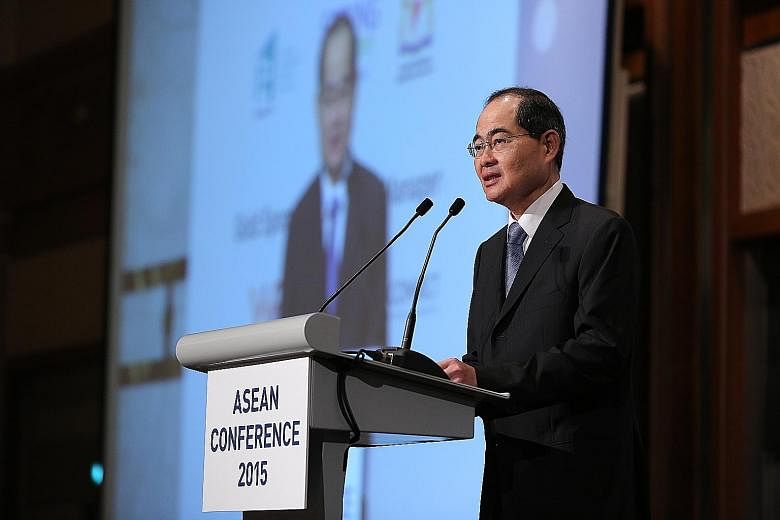To provide financing quickly in the aftermath of regional disasters or catastrophic losses, Singapore has moved to develop alternative risk transfer mechanisms such as insurance-linked securities (ILS) and government pools.
As a start, the Monetary Authority of Singapore (MAS) will fund 100 per cent of the upfront costs incurred in issuing catastrophe bonds - basically assets that pay insurers if they suffer cataclysmic losses - out of Singapore.
Minister for Trade and Industry (Trade) Lim Hng Kiang, who is also deputy chairman of MAS, announced this yesterday at the 14th Singapore International Reinsurance Conference, adding that the grant will run from next Jan 1 and will be applicable to ILS bonds covering all forms of risks beyond just natural catastrophe risks.
"It is my hope that this grant scheme will encourage insurers and reinsurers to consider issuing a catastrophe bond here. In fact, MAS is already working with key industry players such as IAG Re Singapore with a view to issuing a catastrophe bond in Singapore."
Already, an alternative risk transfer workgroup comprising specialists in the ILS space, chaired by Renaissance Re's Jon Paradine, has been set up. It will advise the MAS on specific initiatives that will support the development of Singapore as an ILS hub.
The Government will also tap the opportunities presented by China's One Belt One Road (Obor) projects. A Singapore-based infrastructure consortium, with China Re Singapore as the administrator, has been formed, said Mr Lim.
It will provide specialised insurance coverage and risk management services for Obor projects in the Asia-Pacific region, excluding China, by bringing together Singapore-based insurers, reinsurers and brokers.
The Obor initiative will connect China and countries across Asia, the Middle East and Europe through a series of land and sea trade routes. Roads and railways, gas pipelines, power plants and ports will be built in over 60 countries, with total estimated infrastructure investment to exceed US$1 trillion (S$1.36 trillion).
"There are a myriad of geopolitical, legal, credit and environmental risks in many countries along the corridor. Political instability, rioting, terrorism and conflict can lead to contractual issues and financial losses. Unfamiliarity with legal frameworks and regulations can lead to expensive delays. Non-payment risks can be exacerbated by emerging markets' vulnerability to external shocks, such as currency and commodity price volatility," said Mr Lim.
He said the Obor consortium will start with two lines of business - construction as well as project cargo and liability. The ultimate aim is to be a one-stop solution for both property and casualty insurance, as well as other speciality insurance.
These are part of efforts to close the protection gap in the region, and the Government will incubate insurance solutions for new and emerging risks including cyber and environmental liabilities. Another strategy is to transform the insurance market through technology and innovation.

